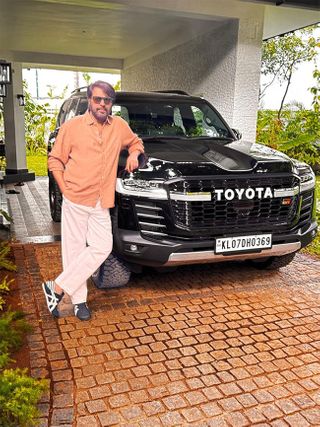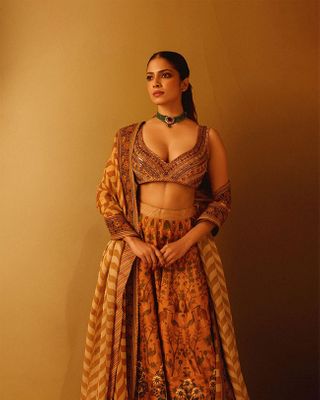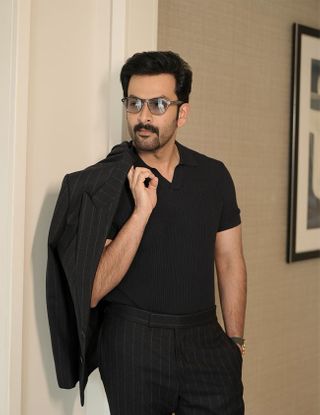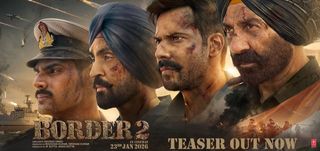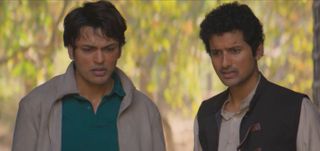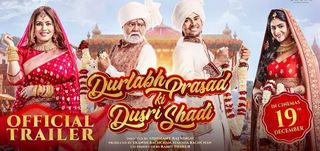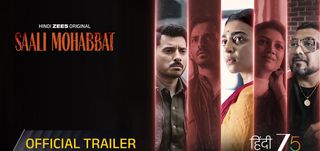Ek Khiladi Ek Haseena Movie Review
Young Suparn Verma, just starting out as a director, sure has confidence. He also has Bryan Singer's "The Usual Suspects" and Vijay Anand's "Jewel Thief" as role models for his con game done in a very chic film-noire style.
But it's "above all" (as Feroz Khan is billed in the credits) James Foley's "Confidence" that sees Verma's "Ek Khiladi Ek Hasina" (EKEH) confidently to the other side of the firing line.
The lines that the characters throw at each other are often like translations of radio plays on mobsters in movies. The repartees flow fast and furiously.
In an early all-boys' exchange Rohit Roy (in a sunshiny cameo) tells bum-chum Fardeen: "Sometimes what looks small is really large and what looks large is actually small."
Fardeen guffaws back: "Don't ever say that to a girl."
Hell, of course not! In fact this isn't a film for the ladies at all. Its sweaty muscular scent and ambience could be off-putting for women audiences who like their men mean but still sensitive under the taut skin, and the women tough but ladylike under the slick exterior.
EKEH is representative of that new-age Bollywood cinema where the heroine - a psychiatrist by profession and a seductress by design - is a player in the male game of one-upmanship.
Every character is a con artiste in Verma's realm of amoral ambitions. Take The Money... And Run! That's the ongoing motto behind the motorised narration.
The fast-paced, frenzied editing (Hemal Kothari) and the self-consciously trendy cinematography (Manoj Soni) cut across the smoky skyline of this psyched-out roller coaster ride into the realm of adventurism.
Verma has designed the film as an audacious ode to acquisitiveness. The lead pair Arjun (Fardeen Khan) and Natasha (Koena Mitra) have their roots in the Bonny-Clyde/ Bunty/Babli role-models where the guy and girl chase their dreams with the cops in hot pursuit.
The wheels-within-wheels in Verma's tale gives it an ambience of unrelieved tension. The humour rescues the film and the rather - unlikeable protagonists and villains, from slipping into self-importance.
The script tracks down the characters in episodic whiplashes. Some segments (for example, the one with the kind scatterbrained housewife Kamini Khanna in the supermarket) work, others don't. Regrettably there are more of the others.
Often the encounters out-run their utility. You find the script getting too clever for its own good.
It's one thing to be ahead of the audience. The narrative gets ahead of itself and barely stops from toppling over. The director brakes in time, and allows the presiding mood of narcotic reverie to rule the roost.
For sure the film cracks a new genre: the con-adventure. But it belongs neither to Bollywood nor Hollywood. The actors succeed in maintaining a mood of cool swagger like a bunch of con artistes modelling for menthol.
In the way that Fardeen holds his cigarette and puffs to immoral glory, or the way Koena does the chic sultry act without giving too much away, EKEH overcomes the uphill task of creating a world born out of wedlock.
There are no indigenous reference points for the world of cons, cops and crime that Verma so diligently and humorously put out of a borrowed vision. The villains played by Gulshan Grover and Feroz Khan are served up as suave well-mannered men of the world while the heroes they model their machismo on the villains.
A topsy-turvy world of titillation and adventure, EKEH is at best a transposed Hollywood thriller with an outstanding boys-day-out performance by K.K. Menon.
As the deceptively muddled hit man Kaif, KK brings a timbre of tight-fisted tragedy to Varma's ode to the litany of liars.
Just who are these people who control the galaxy of gangsterism? Are they real? Or are they facsimiles of reality? Is the film's thesis of immortality (good guys don't finish first because there are no good guys!) to be taken seriously?
This film mirrors the changing face of Bol






